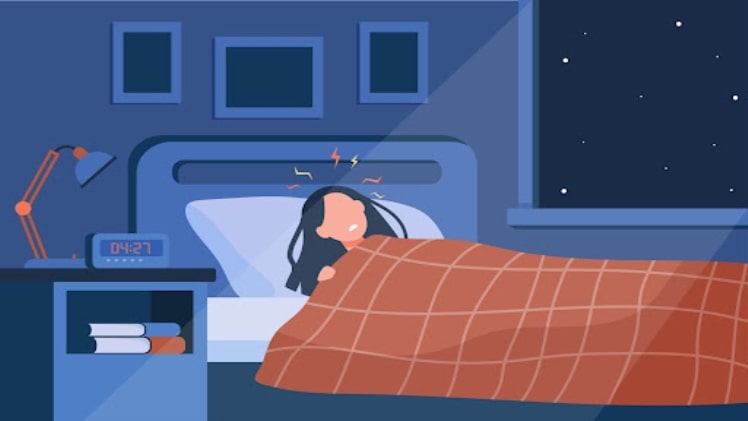Vivid Dreams: A Detailed Knowledge

What Are Vivid Dreams?
Vivid dreams are usually associated with anxiety and stress. They are genuine and often depict events in our waking life. These dreams show our deepest fears and insecurities. Others have a more unusual plan in which an item is seemingly actual but is not. If you’re unsure how to describe your dream, take a look at the list below. A common theme of a vivid dream is an illness.
Dreams are full of emotional and vivid experiences. Certain illnesses can make sleep patterns unpredictable, so your dreaming patterns may be impacted by a disease. If your dreams are a little strange, they may be a sign of a deeper emotional problem. It’s important to remember that vivid dreams are often the result of an abnormal or deviant sleep pattern. You may even be suffering from a sleeping disorder.
Why Do Vivid Dreams Occur?
The answer is complex and may not be 100% understood by scientists, but it may have something to do with how your brain processes information while in a deep sleep. Rapid eye movement (REM) occurs during this period, responsible for your dreaming. The average adult sleeps about 20 to 25 hours each night. Your dreams can be as detailed and dramatic as they are real.
Although people spend around two hours dreaming, many do not remember them. Others wake up with vivid dreams. While some plans can be happy or comforting, others can be frightening and upsetting. It is essential to determine why you experience such nightmares for either scenario. For many people, having vivid dreams can interfere with the quality of their sleep.
The last dream of a sleep cycle is often remembered the best. In addition to being upsetting, vivid dreams can be beneficial or painful. While some studies have shown that vivid dreams are a sign of a traumatic experience, it’s essential to determine its cause. For example, pregnancy can trigger mood swings. While the last dream is often the most vivid, some women have vivid dreams.
Causes Of Vivid Dreams
Illness:
The first thing to understand about the relationship between sleep and immunity is that people with certain illnesses are more likely to experience vivid dreams. However, the goal itself is not necessarily related to the cause of the disorder. It may be a sleep disorder, a physical illness, or a mood disorder, and treatment of the underlying condition will help alleviate the problem. In addition to this, the dream itself is a symptom of the underlying condition.
Medications:
The second cause of vivid dreams is the use of medications. Studies have shown that various drugs, including antidepressants, blood pressure drugs, Parkinson’s disease medications, and drugs to stop smoking, can cause dream recurrences. Additionally, the use of recreational drugs and alcohol and drug withdrawal can trigger these experiences. Some physical conditions, such as narcolepsy, have also been linked to vivid dreams.
Stress And Trauma:
Stress and traumatic events can also trigger vivid dreams. In addition to medication, changing a person’s sleeping schedule or drugs can affect the frequency of vivid dreams. In addition, changes in one’s sleep schedule may contribute to vivid dreams. It is important to remember that sleeping late can cause REM sleep, responsible for more detailed dream experiences. In addition, lack of sleep can lead to more vivid dreams.

Change In Sleep Habits:
Besides the above causes, the most common reason for vivid dreams is changing sleep habits. Some medications can trigger the occurrence of vivid dreams. Beta-blockers, blood pressure medication, and drugs to stop smoking cause this. Excessive consumption of alcohol or recreational drugs and drug withdrawal can also trigger this condition. Furthermore, certain physical and mental illnesses have also been linked to the occurrence of vivid dreams. So, take proper steps to get good sleep. Sleep in comfortable mattresses, get good-sized blankets, comforters, and quilts. Quilts are lighter blankets that are soft on the body. The technique of quilting is primitive but popular.
Ways To Prevent Unpleasant Vivid Dreams
There are many things you can do to help prevent unpleasant vivid dreams. These days, people with mental health conditions, such as post-traumatic stress disorder are especially susceptible to experiencing these dreams.
Get Proper Sleep:
First, try to get a good night’s sleep. Try a few strategies if you’re having trouble falling asleep or staying asleep. Keeping caffeine out of your system will help you sleep more soundly. It’s also essential to sleep on your side to minimize the risk of vivid dreams. If you wake up panicking about your dream, you may be experiencing too much stress. So, take proper measures to get good sleep. You can learn some online mattress shopping tips and get a comfortable mattress for yourself.
Avoid Violent Or Scary Content:
Second, try to avoid viewing violent or scary media before bed. If your dreams are too vivid and disturbing, see a doctor or psychologist. If you can’t get to sleep, you may be suffering from a psychological problem. If you’re struggling with chronic pain, seek mental health assistance to help you overcome it. Lastly, remember that the quality of your sleep affects your physical and mental health, so tackling these issues can help you prevent unpleasant vivid dreams.
Visit A Doctor:
If your dreams are too vivid and frightening, visit a doctor. If you’re struggling with physical pain or mood disorders, you should visit a mental health professional. They can prescribe medication or counselling to address the problem. Finding the root cause of your dream is the first step to preventing it. If you find the cause of your nightmares, you can make an effort to deal with the issue and stop worrying about it.
Find The Cause Of Your Dream:
Identify the cause of your dream. If the pain is physical, visit a healthcare provider. A mental health professional can prescribe medication to address the cause of your vivid imaginations. Your quality of sleep is vital for your physical and psychological health. If your dreams are too vivid, you may want to consider visiting a sleep clinic to ensure that they’re not triggered by pain. The only way to stop having these disturbing dreams is to learn how to relax during the night.
Conclusion
If you’re unable to get enough sleep, a vivid dream may be an early warning of a more severe condition. Some health conditions can lead to more intense fantasies. Those who have insomnia may experience nightmares or have vivid dreams. It is essential to seek medical care immediately if you experience these conditions. These issues can lead to a range of complications. In addition, it is imperative to get the proper amount of sleep.





